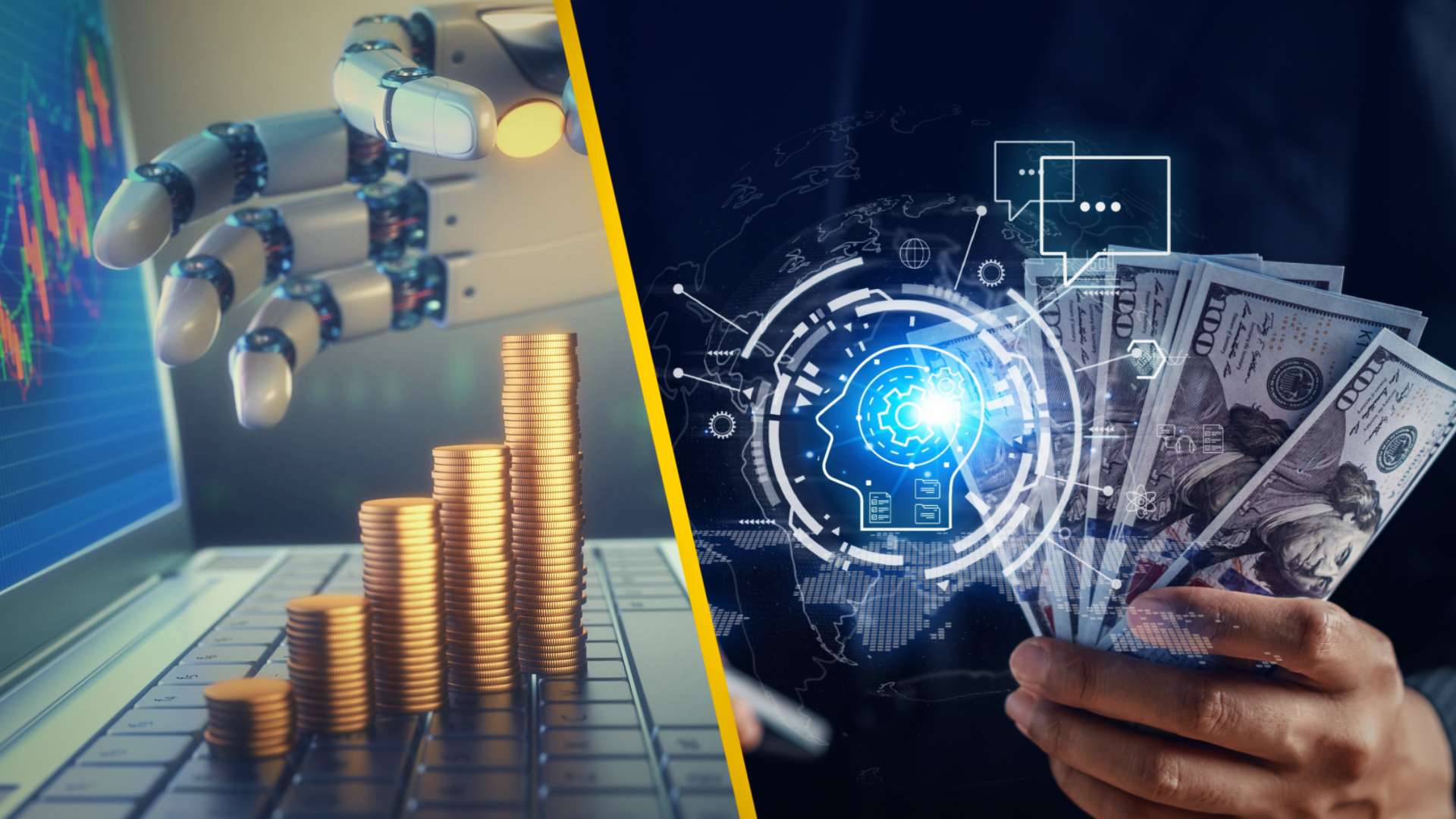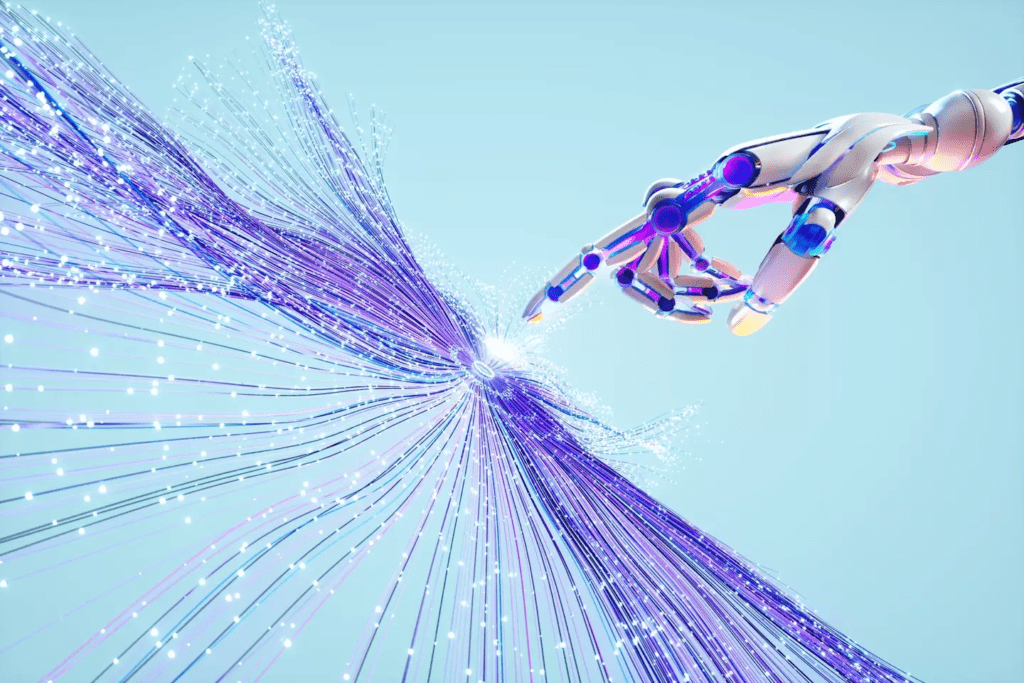Why Tech Companies Are Betting Big on AI: A Physicist’s Terrifying Prediction About Our Future

The Growing Fear of AI Replacing Us
In recent years, the rise of artificial intelligence (AI) has sparked a wave of anxiety among workers across various industries. From journalists to customer service agents, manufacturers to financial analysts, many are fearing for their future employment as AI continues to evolve at an astonishing rate. Even actors and voice performers are feeling the heat, worried that AI will soon replace them in their careers.
Despite the mixed results of AI applications so far—often producing mediocre outcomes—the reality is clear: AI is advancing quickly, and companies are eager to incorporate it into their operations. From AI-driven Christmas advertisements by major brands like Coca-Cola to AI-generated art, it’s becoming evident that artificial intelligence is here to stay. But why are tech companies investing so heavily in AI? And what does this mean for the future of work?

Let’s take a deeper dive into the thoughts of Anthony Aguirre, a well-known physicist, who recently shared a troubling prediction on X (formerly Twitter). According to Aguirre, the real reason behind the tech industry’s push to integrate AI might not be about offering tools like ChatGPT Pro to consumers but about preparing for a future where AI replaces human workers. This could have far-reaching implications for employment worldwide.
The Long Game: Tech Companies’ Investment in AI
When we think about AI and its rapid development, it’s easy to focus on consumer-facing applications like ChatGPT. Many of us use AI tools for writing assistance, brainstorming ideas, or even casual conversations. However, Aguirre suggests that the real goal for tech companies is far more ambitious. Rather than focusing solely on subscription fees from everyday users, AI is seen as a long-term investment. Tech giants understand that in the future, businesses will pay massive sums to use AI systems that can replace human workers.
Aguirre’s prediction is unsettling but reasonable. He stated: “They’re doing it because they know your employer will pay hundreds or thousands a month for an AI system to replace you, if and when it can.” Essentially, tech companies are positioning themselves to be the gatekeepers of AI systems that may eventually eliminate the need for human workers in various industries.
The AI Revolution: Where Is It Headed?
AI has already made significant strides in areas like automation, customer service, and data analysis. Experts have even speculated about which jobs are most at risk of being overtaken by AI. From factory workers to drivers, there’s a growing concern that automation could eliminate many of the roles that form the backbone of the global economy.
However, Aguirre’s commentary suggests that the impact of AI will extend far beyond the jobs that are most frequently discussed. Even positions that seem immune to automation—like management or creative roles—might not be safe for long. AI systems are becoming more adept at problem-solving, learning from vast amounts of data, and even generating content that rivals human-created work.
For example, ChatGPT and other AI-driven content generators can write articles, create marketing copy, and generate product descriptions—tasks traditionally performed by human employees in marketing and communications. In a few years, AI-generated content may be indistinguishable from that written by humans, leaving many writers and marketers with fewer opportunities.
The Unsettling Truth About AI and Job Loss
As AI evolves, it’s easy to become fixated on the potential benefits. AI promises to increase productivity, improve customer service, and provide data-driven insights. However, there’s an undeniable downside: job displacement. The rapid pace of AI development raises the question: how long will it take before AI completely replaces human workers in many sectors?
Although we’ve seen AI make great strides in automating routine tasks, the fear remains that more complex jobs will eventually be replaced as well. For instance, software engineers, medical professionals, and even lawyers could find themselves competing with increasingly sophisticated AI systems that can analyze data and make decisions faster and more efficiently than any human could.
This fear was echoed by many when Aguirre’s post was shared on Reddit, where users discussed the potential consequences of a future dominated by AI. One user ominously predicted that “one oligarch will simply have a robot farm and a robot mine, and will trade Bitcoin to the guy who has the robot fusion reactor for electricity.”
You are not the real customer
byu/MetaKnowing insingularity
Voices of Resistance: Is AI Really the Answer?
While many are worried about the future of employment in an AI-driven world, some people are taking a more optimistic view. According to one Reddit commenter, “Jobs are sh*t right now, they should be automated.” The idea is that many current jobs, especially those in low-wage sectors, are undesirable and unfulfilling. If automation can take over these roles, it could lead to a society where people no longer have to work in jobs they despise.
However, this view doesn’t come without its own challenges. If AI were to replace a significant portion of the workforce, the question arises: what happens to the people who lose their jobs? Could society transition to a model where humans focus on creative, intellectual, or humanitarian pursuits while AI handles most of the physical and administrative labor? Or would we risk creating a society where wealth disparity grows even wider, with a small group of tech companies and elites controlling the bulk of resources?
Social Media Reactions: A Divided Opinion
As AI continues to dominate discussions online, opinions remain divided. Many social media users have expressed concerns, while others are welcoming the shift. Here are some notable reactions from social platforms:
- From X (formerly Twitter):
“AI might just be the future, but it’s scary to think about how it could displace so many jobs. We need to figure out what comes next for all those people who will be left behind.”
Check out the full thread here. - From Reddit:
“Imagine a world where a few mega-corporations control everything with their AI systems. It’s both fascinating and terrifying at the same time. The world of work is changing faster than we realize.”
Join the conversation on Reddit. - On Instagram:
“AI will change everything—whether we’re ready or not. Will we embrace it as a tool for efficiency, or will it spell the end of traditional work as we know it?”
See more reactions on Instagram.
These reactions highlight the widespread uncertainty surrounding the role AI will play in our future economy. Will it usher in a new era of productivity, or will it leave millions of workers struggling to adapt?
The Big Question: Will Companies Embrace AI’s Full Potential?
Despite these concerns, it’s important to recognize that AI is still in its early stages. We have yet to fully realize its potential, and much of the technology is still being tested and refined. Some experts believe that AI’s role in the workplace will evolve slowly, with hybrid systems in which humans and AI work together rather than replace each other outright.
However, Aguirre’s warning is clear: the potential for widespread job replacement is real, and companies are betting on it. As AI becomes more advanced, there will be immense pressure on businesses to adopt it in order to stay competitive. Automation is already being used in warehouses, factories, and logistics, and it’s likely to spread to more sectors as technology improves.
In the long term, we could see a world where companies rely entirely on AI to run their operations, with human employees serving in more specialized or advisory roles. But will society be ready for such a radical shift?
Conclusion: Navigating the Future of AI and Employment
While the rise of AI presents significant challenges, it also offers opportunities for growth, innovation, and a rethinking of the role of work in our lives. Whether we’re ready for AI to take over or not, it’s clear that we need to prepare for a future where machines are an integral part of every industry.
The question remains: will tech companies listen to the potential consequences of AI, or will the rush for profits blind them to the societal implications of such radical changes? Only time will tell.
Engage With Us:
What do you think about the future of AI? Will it replace your job, or do you see it as a tool for positive change? Share your thoughts with us on Twitter, Reddit, or leave a comment below!





